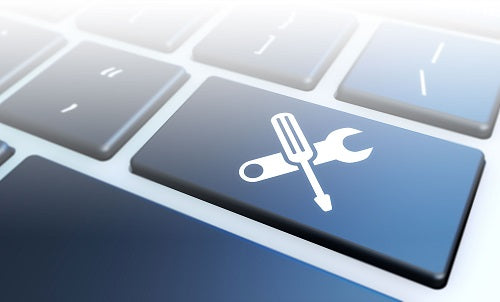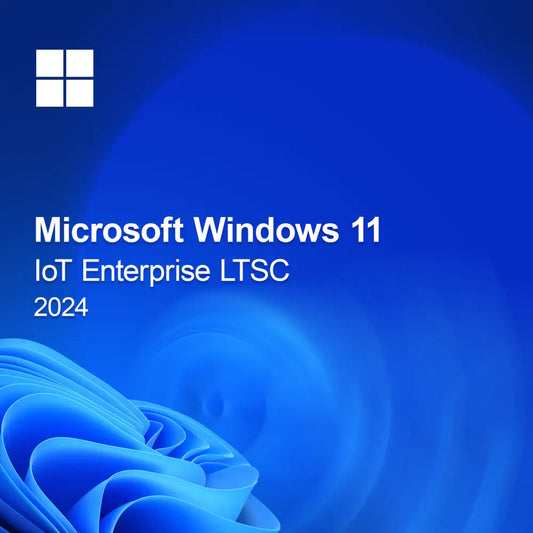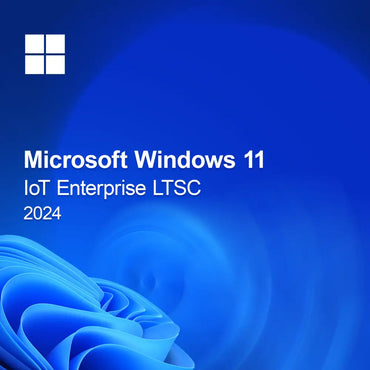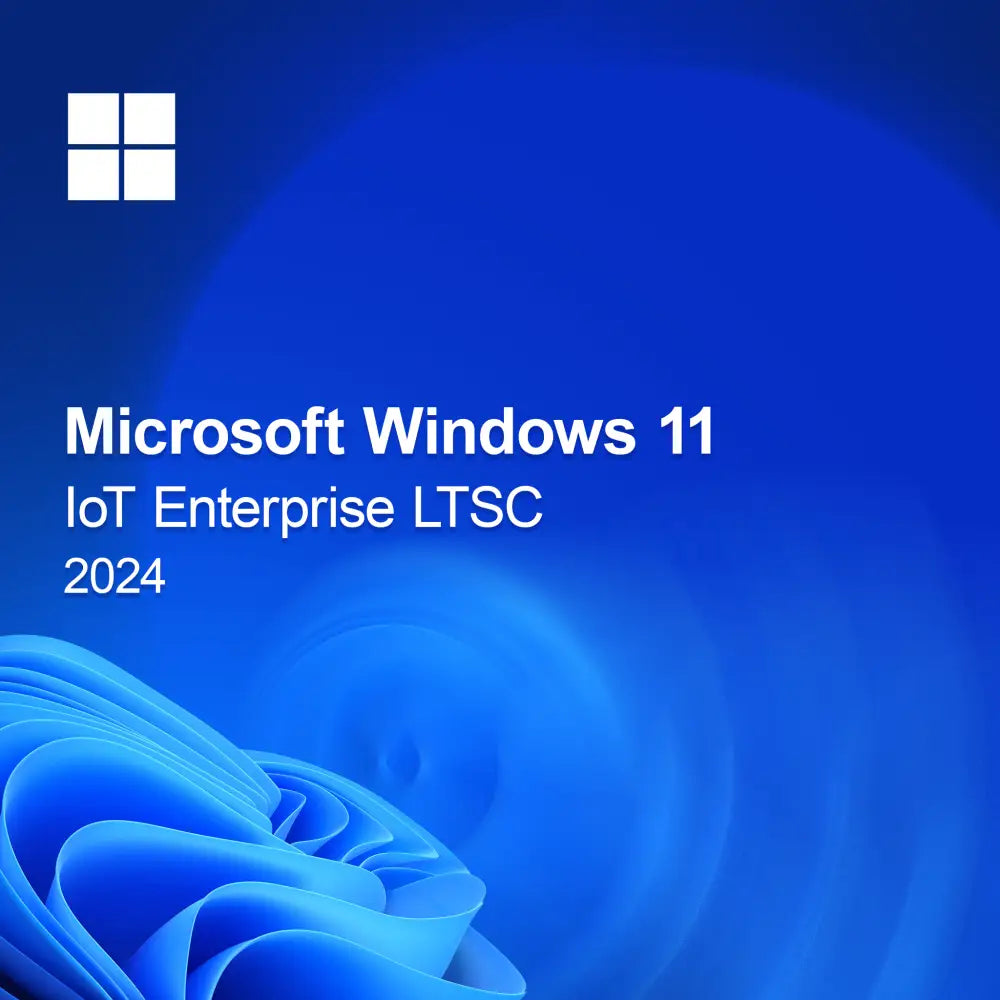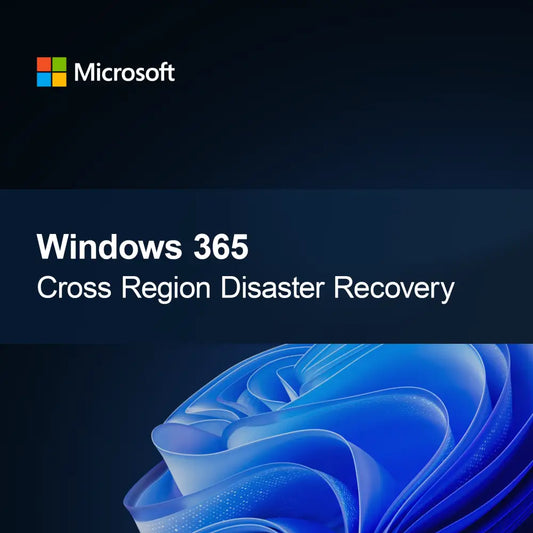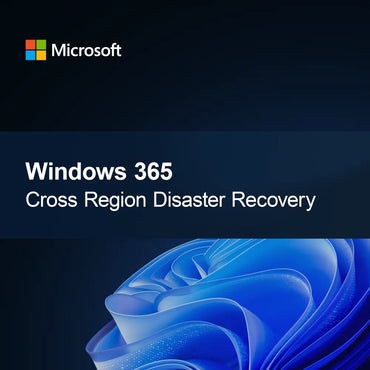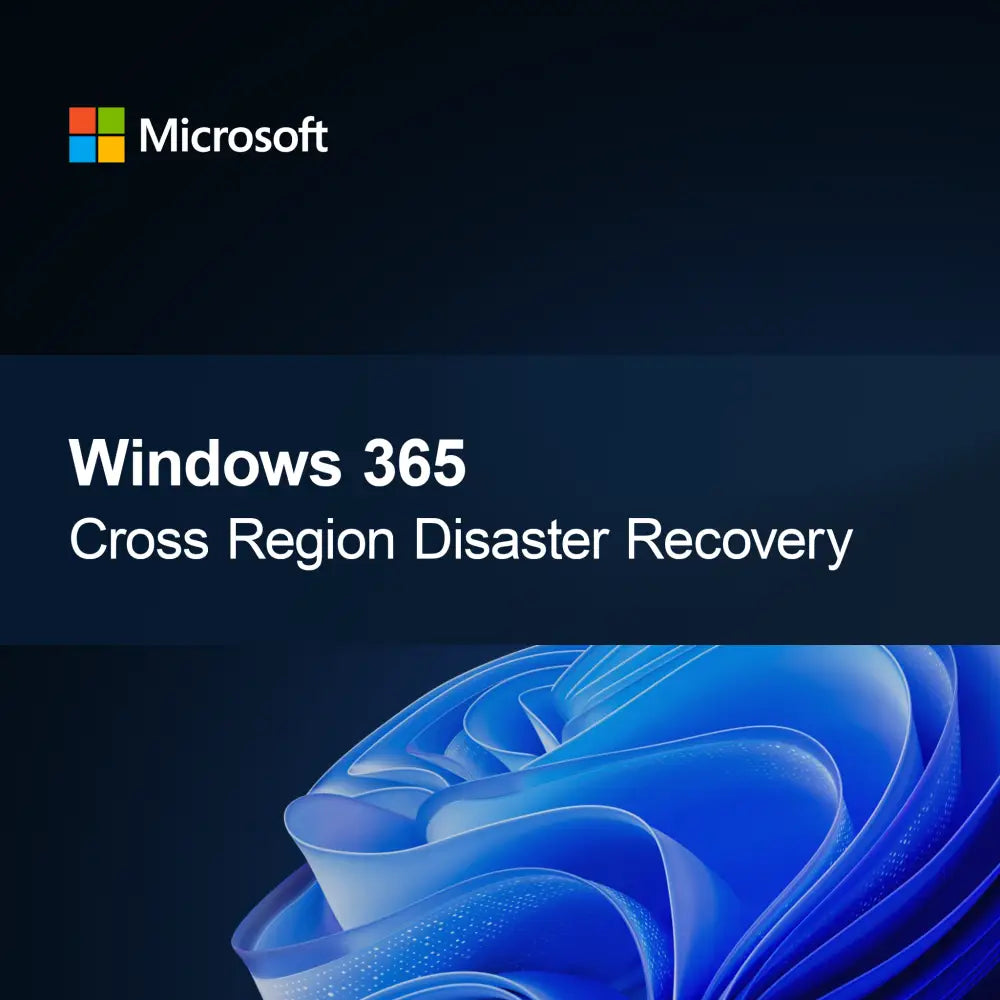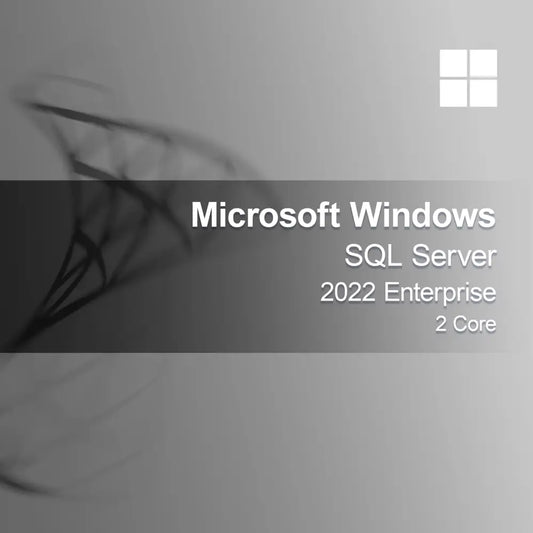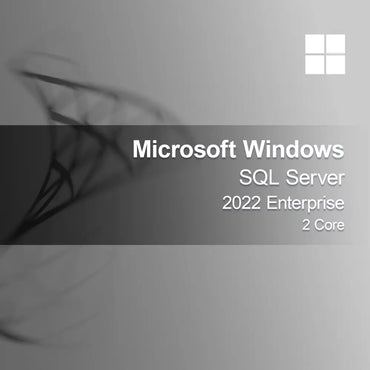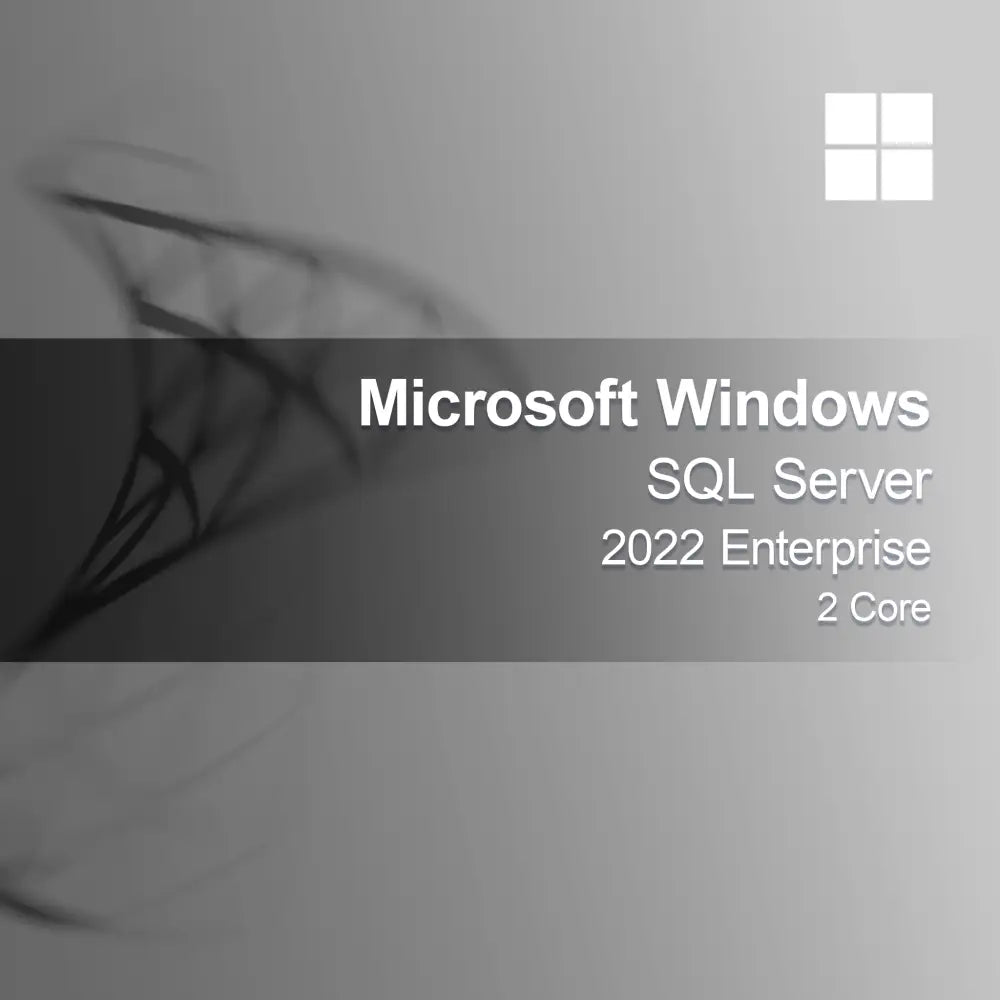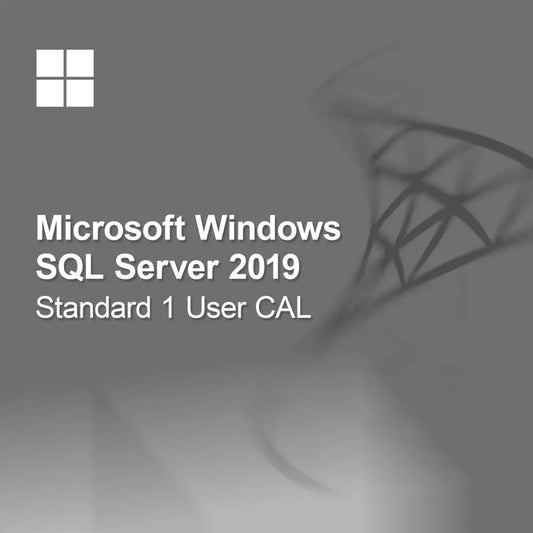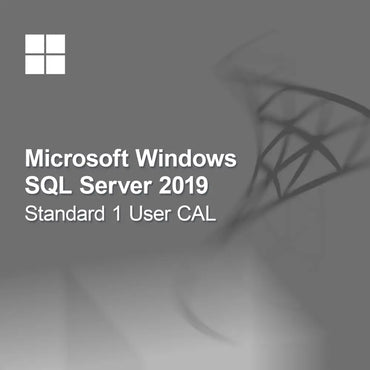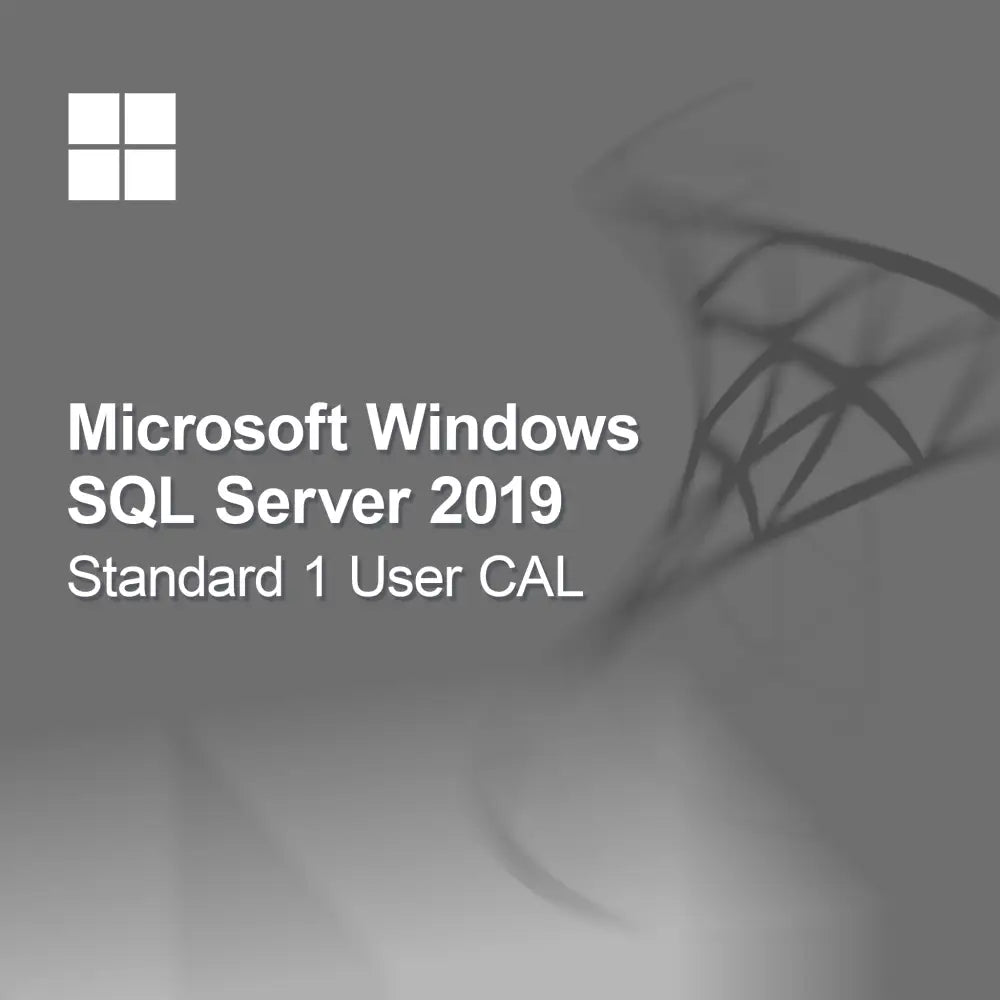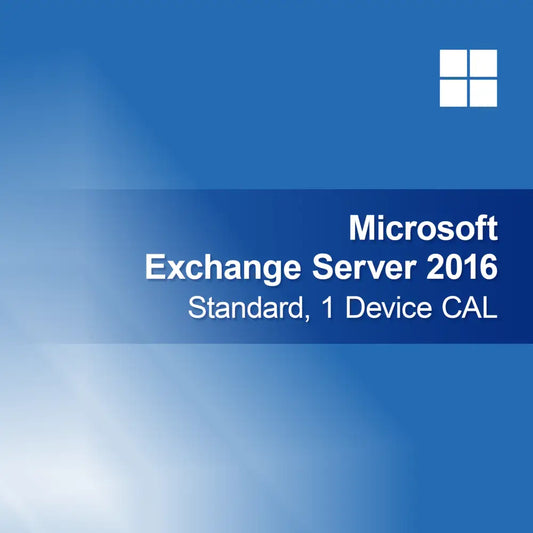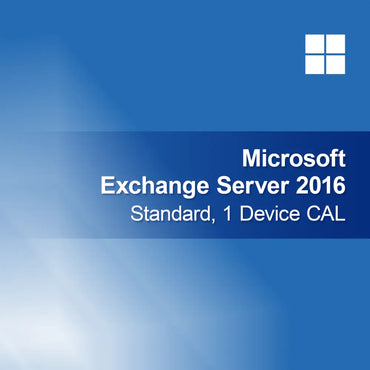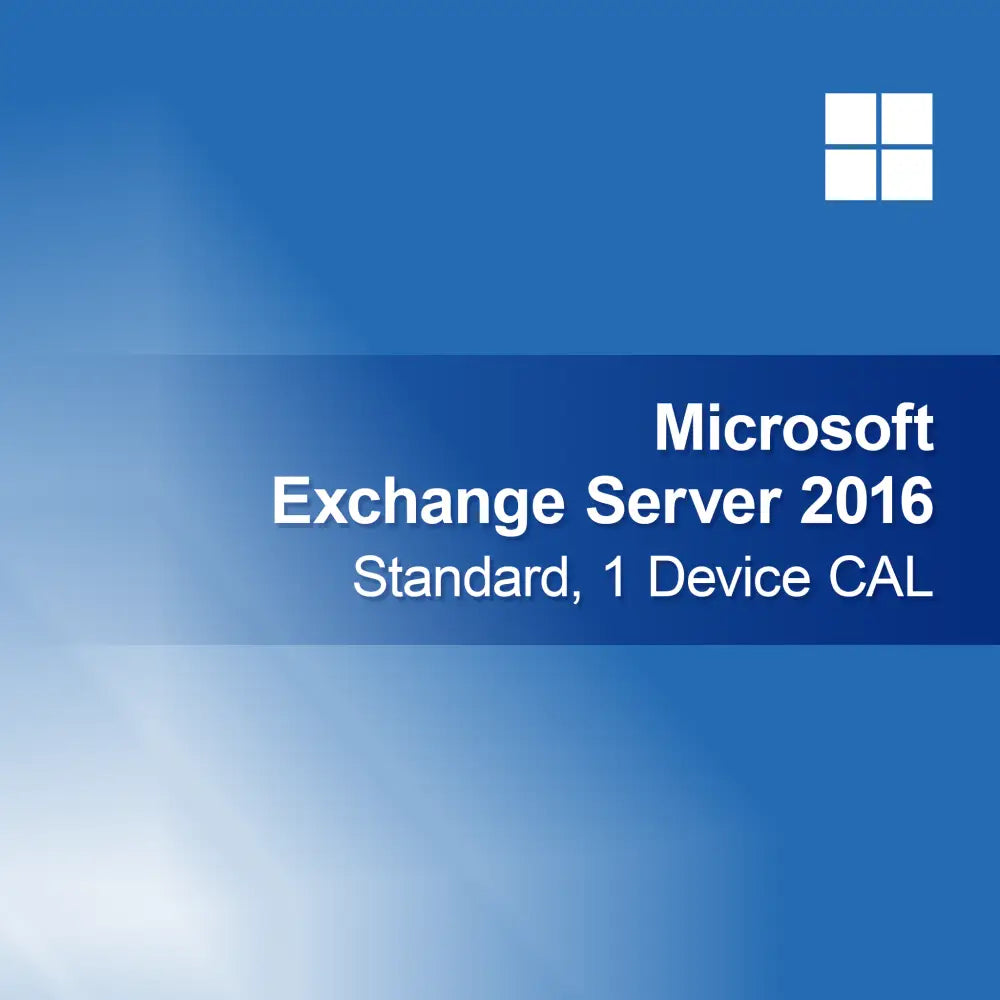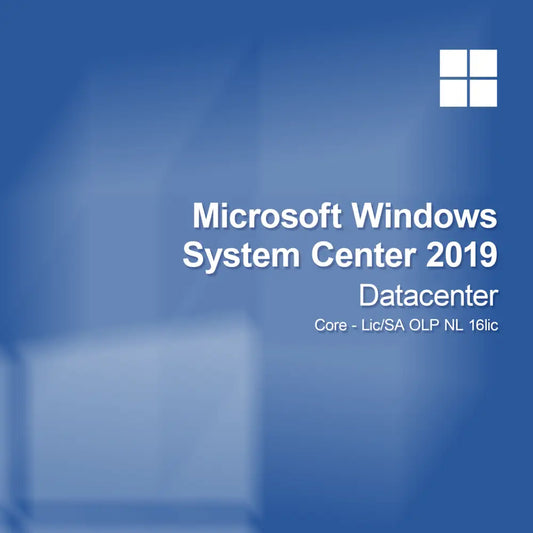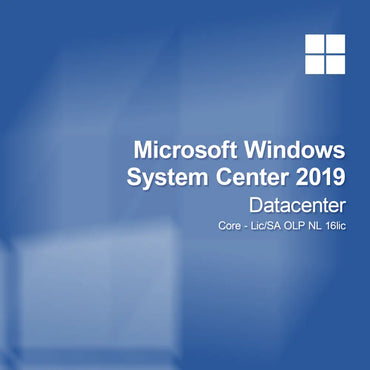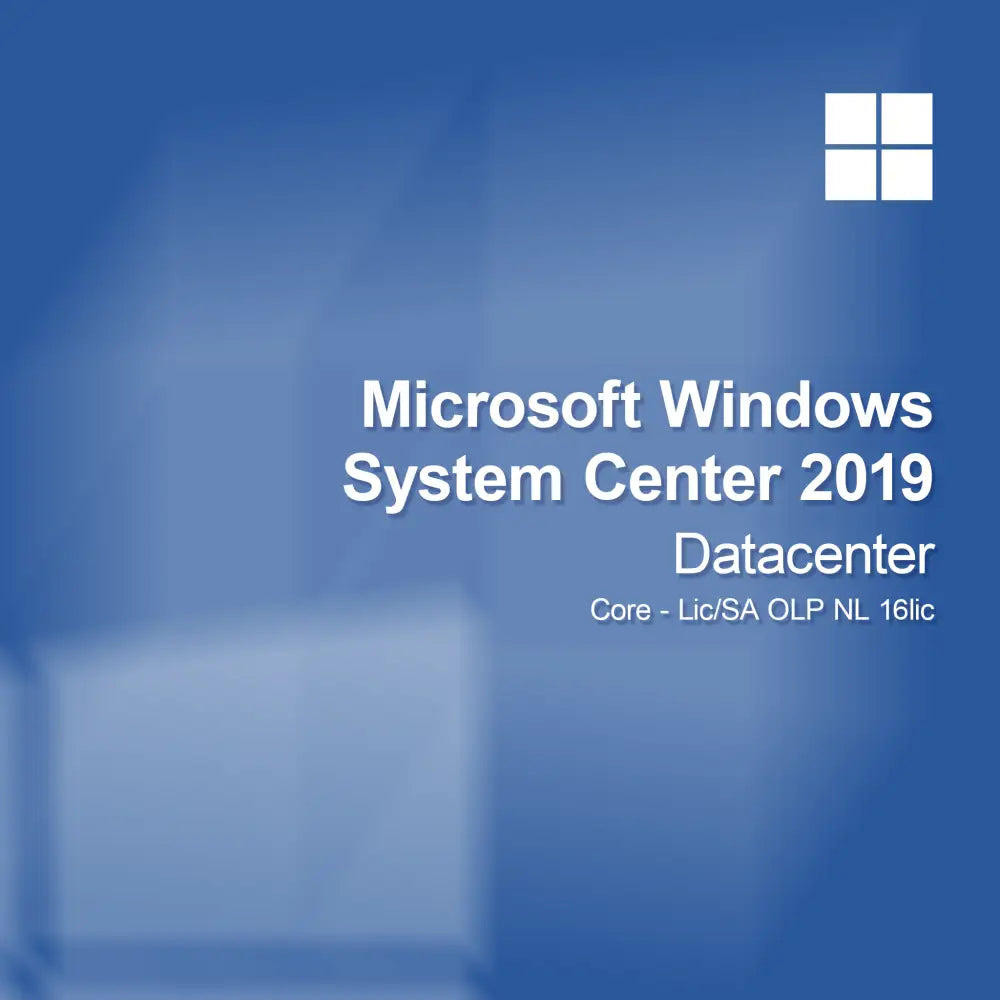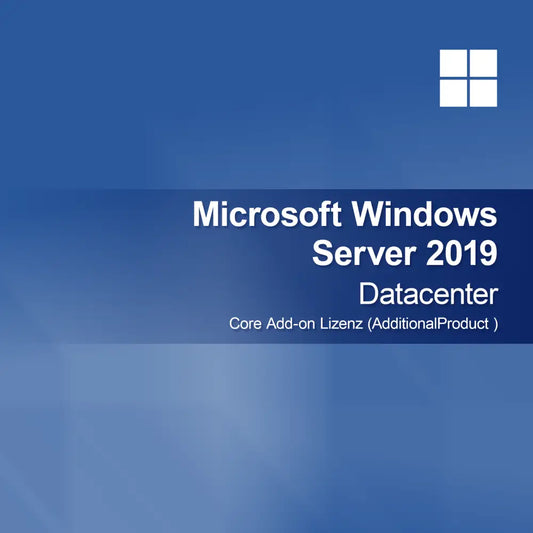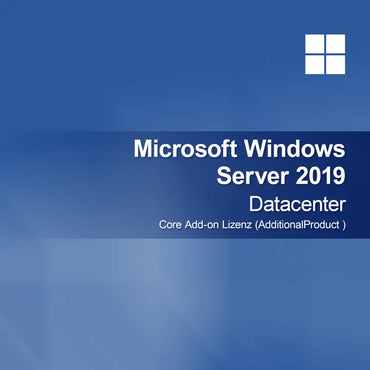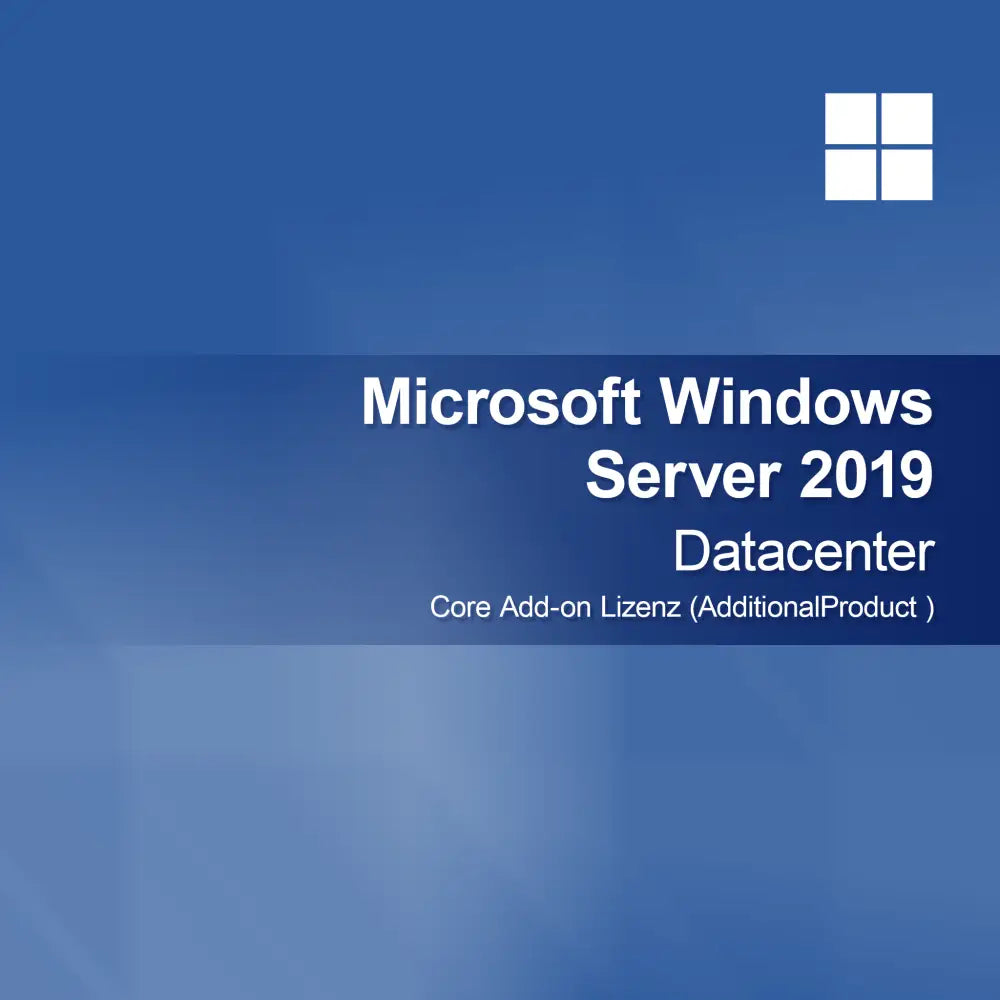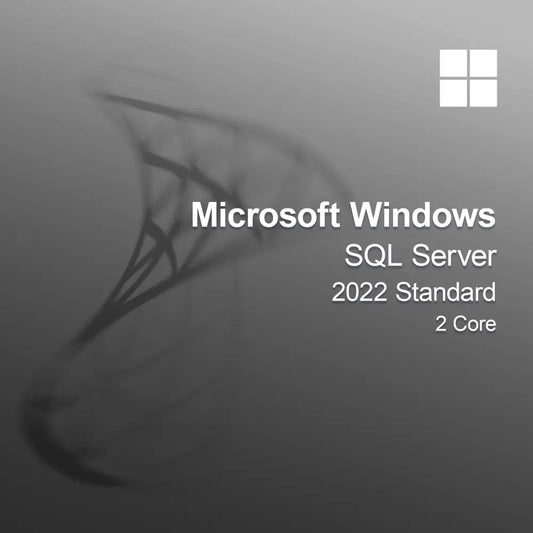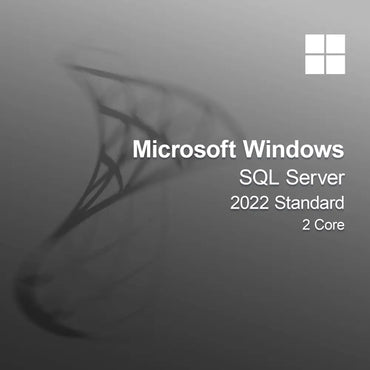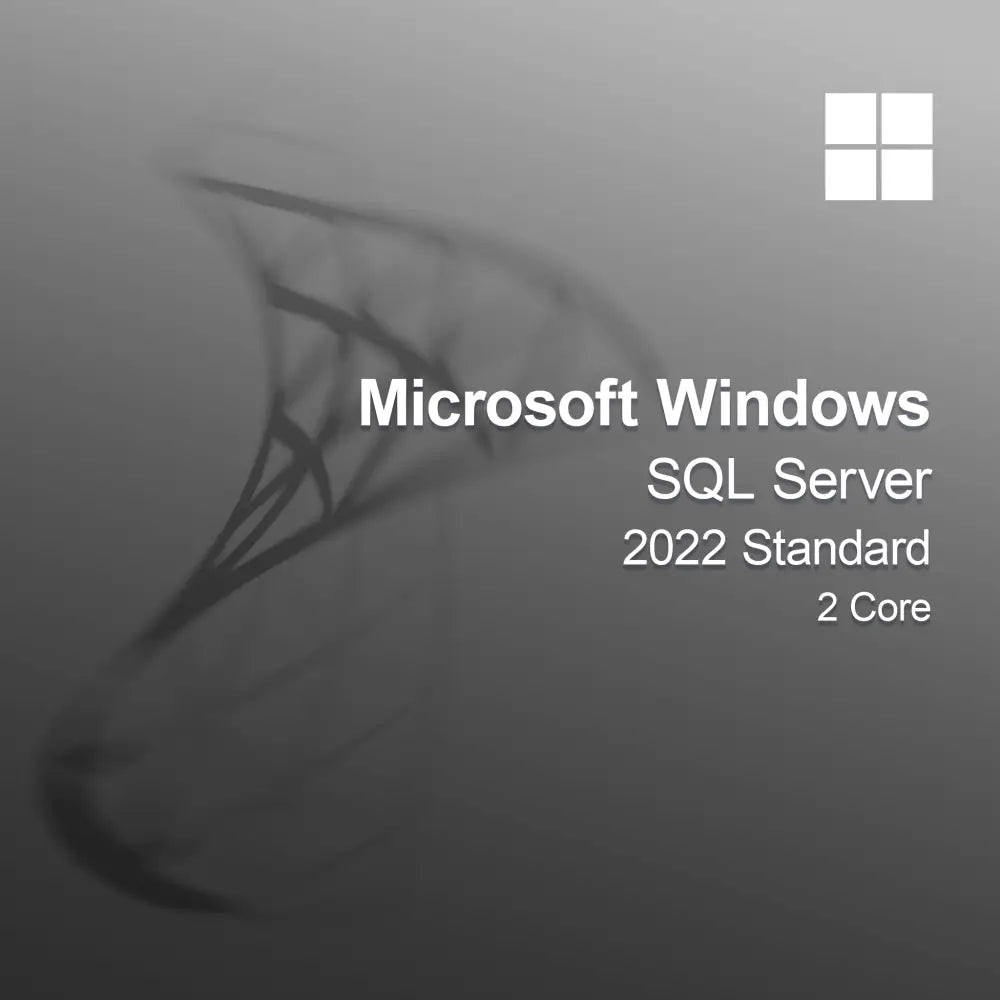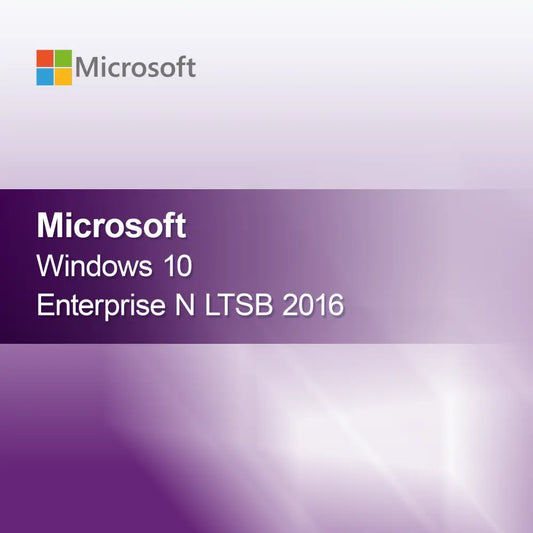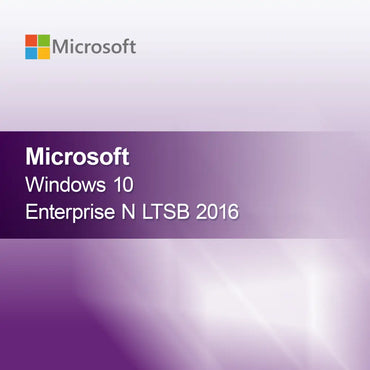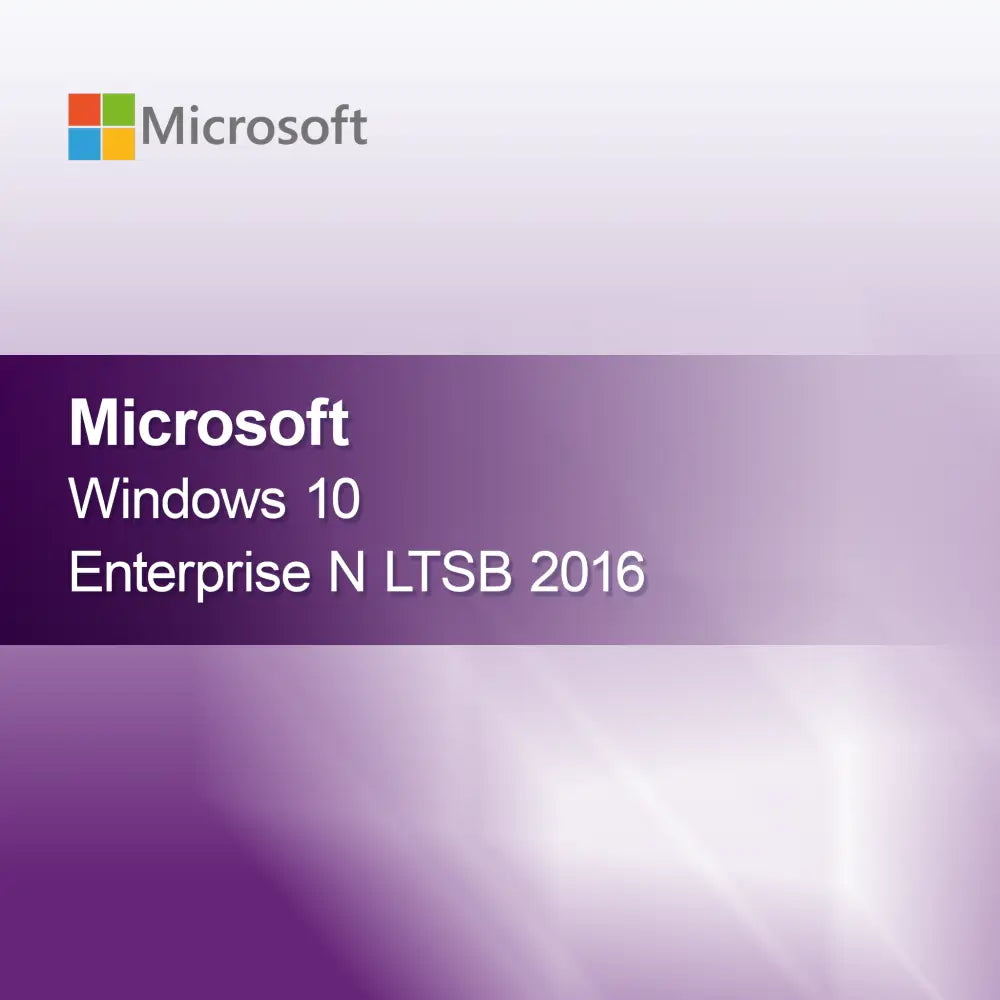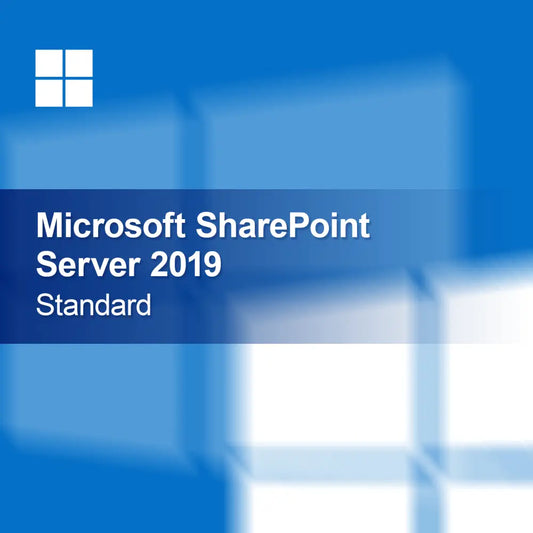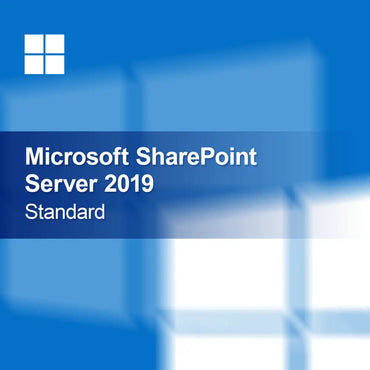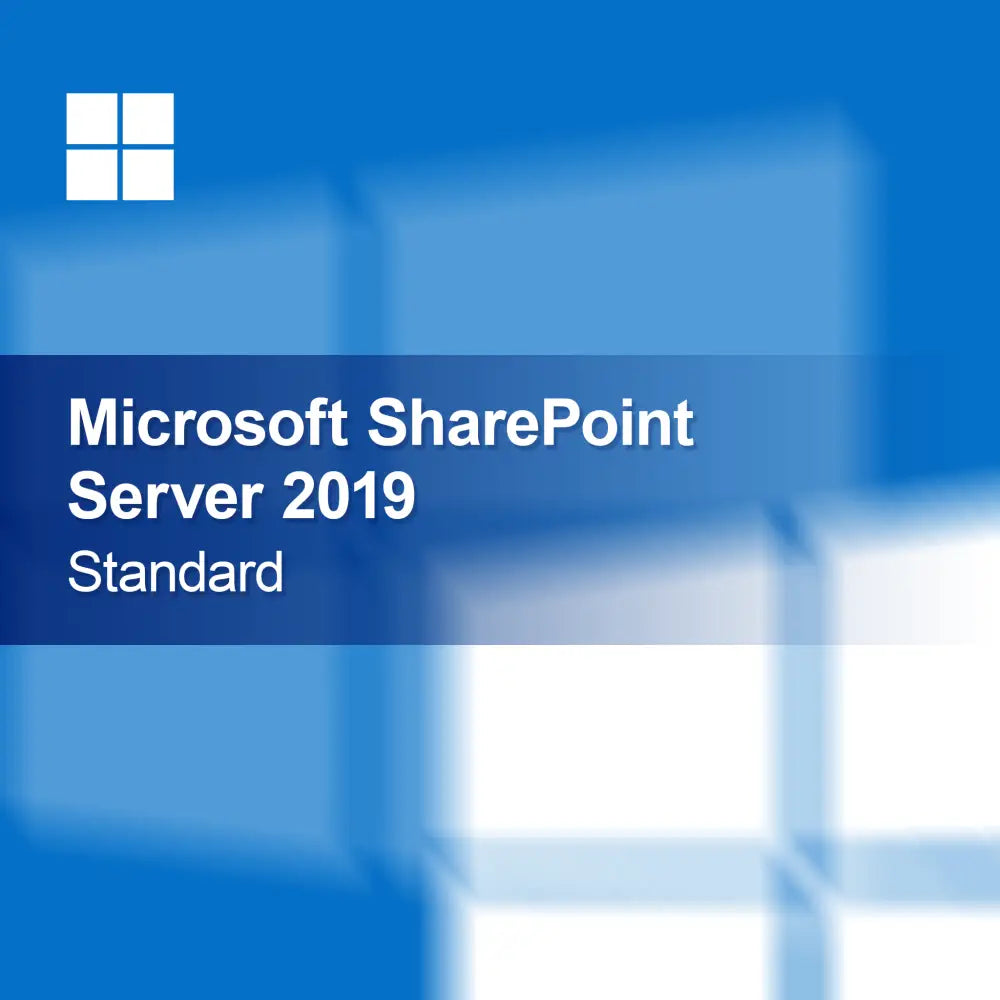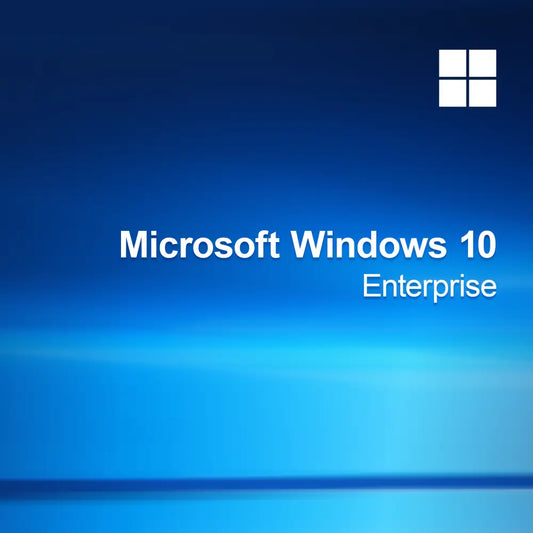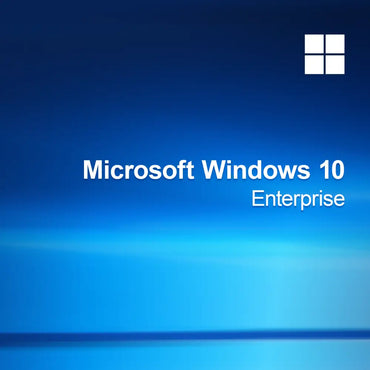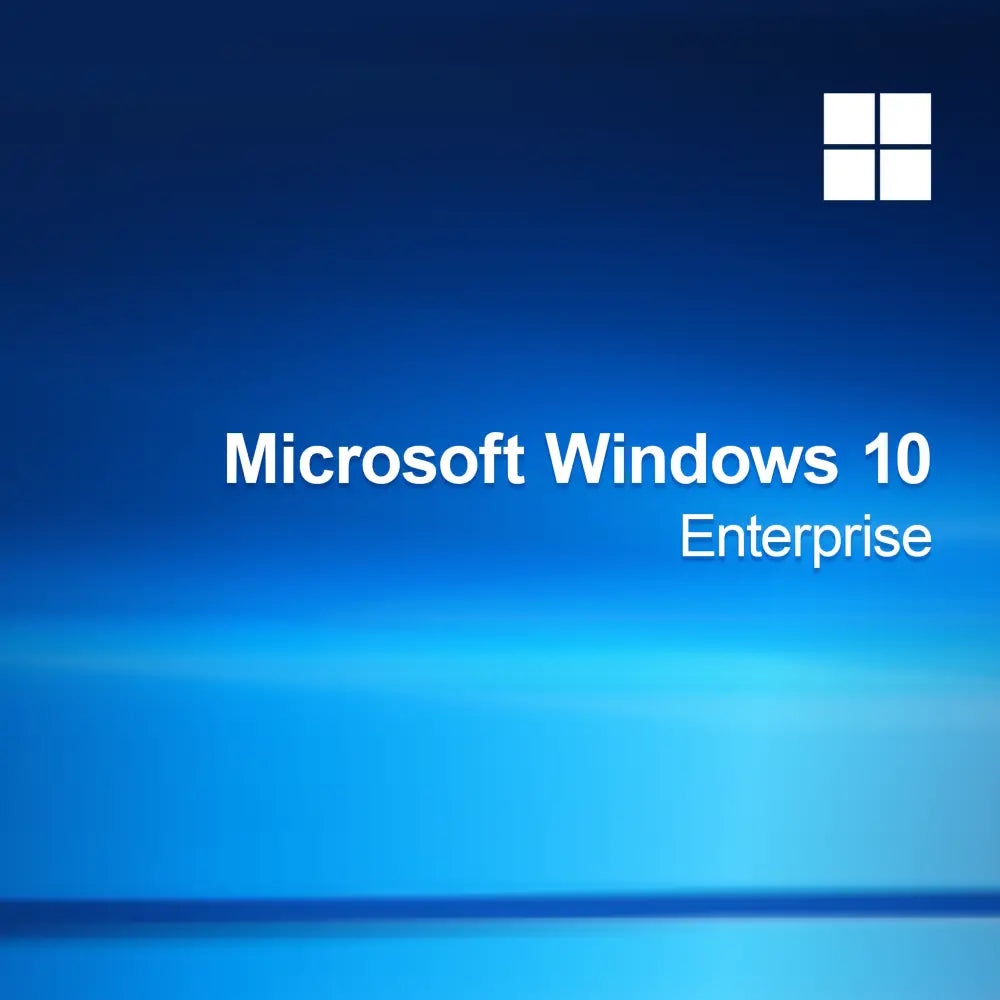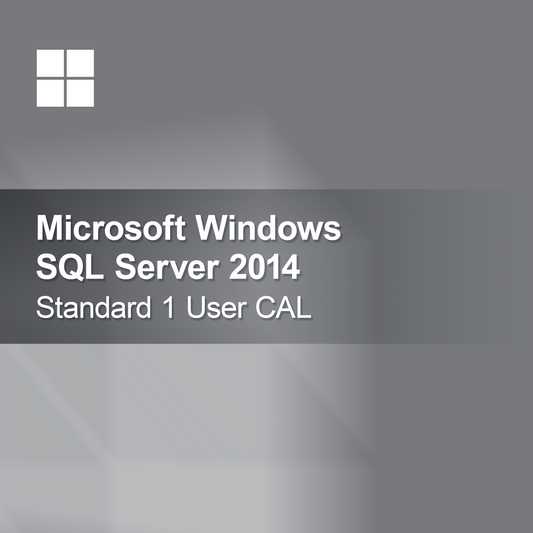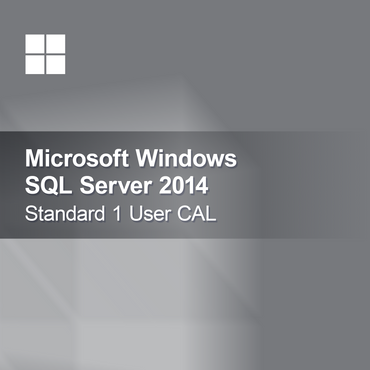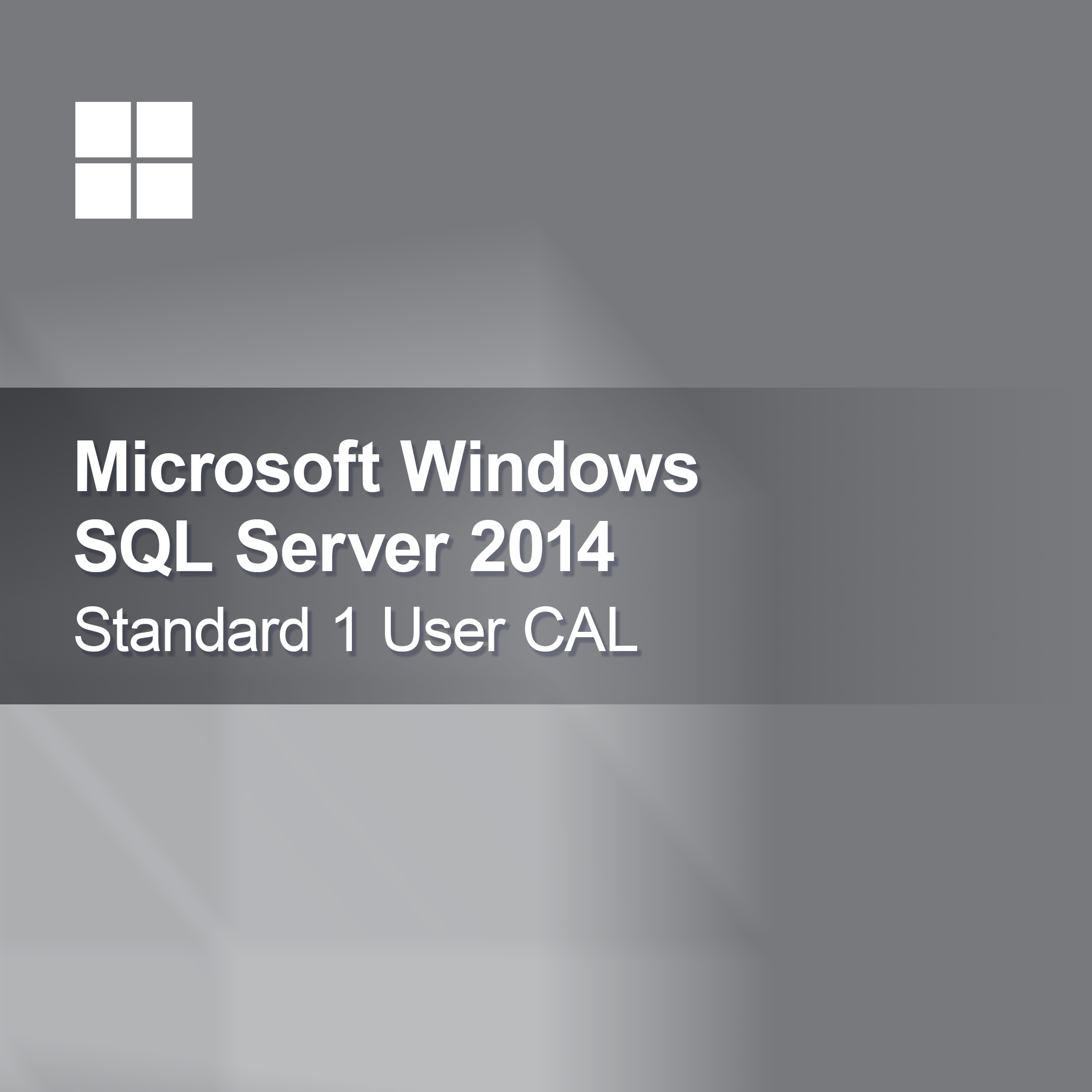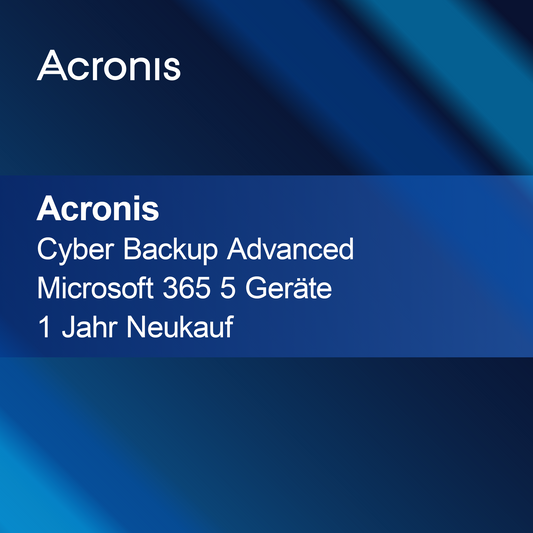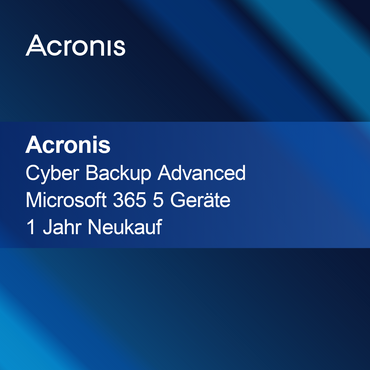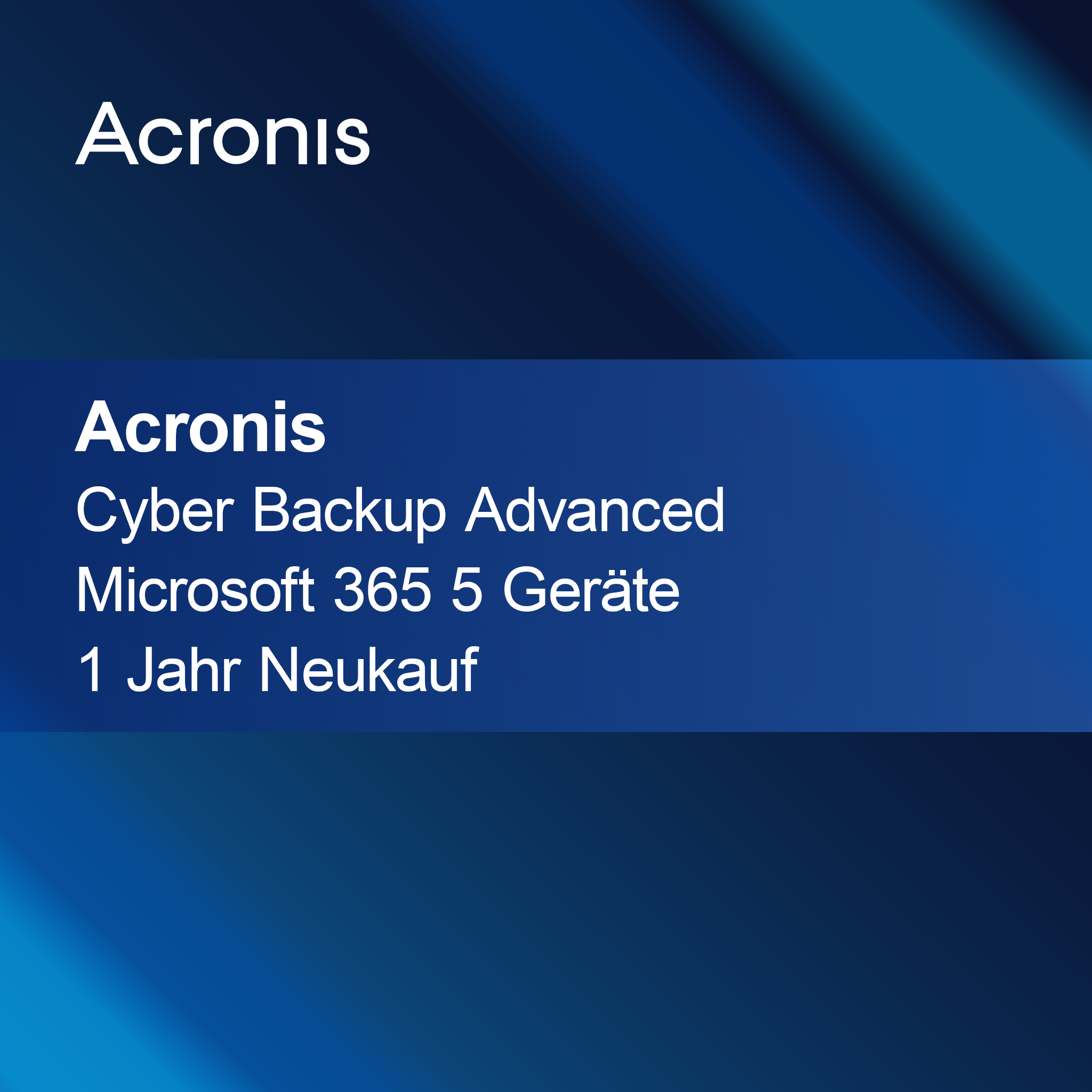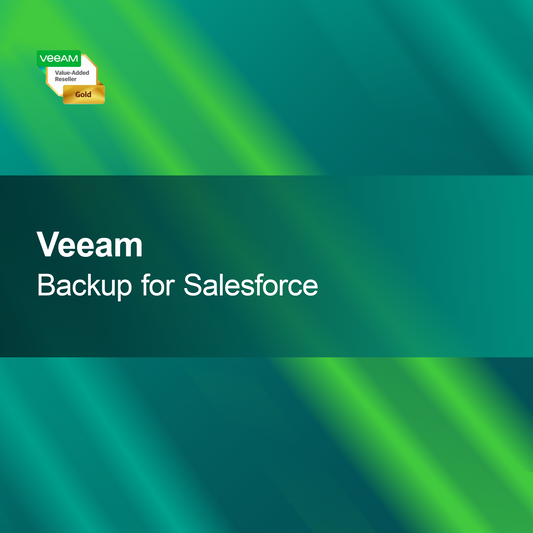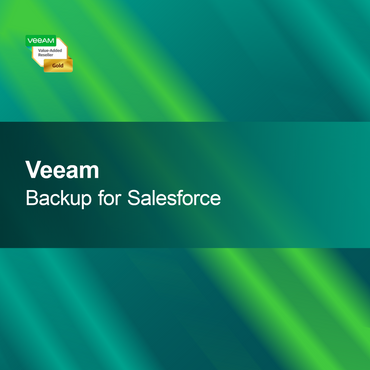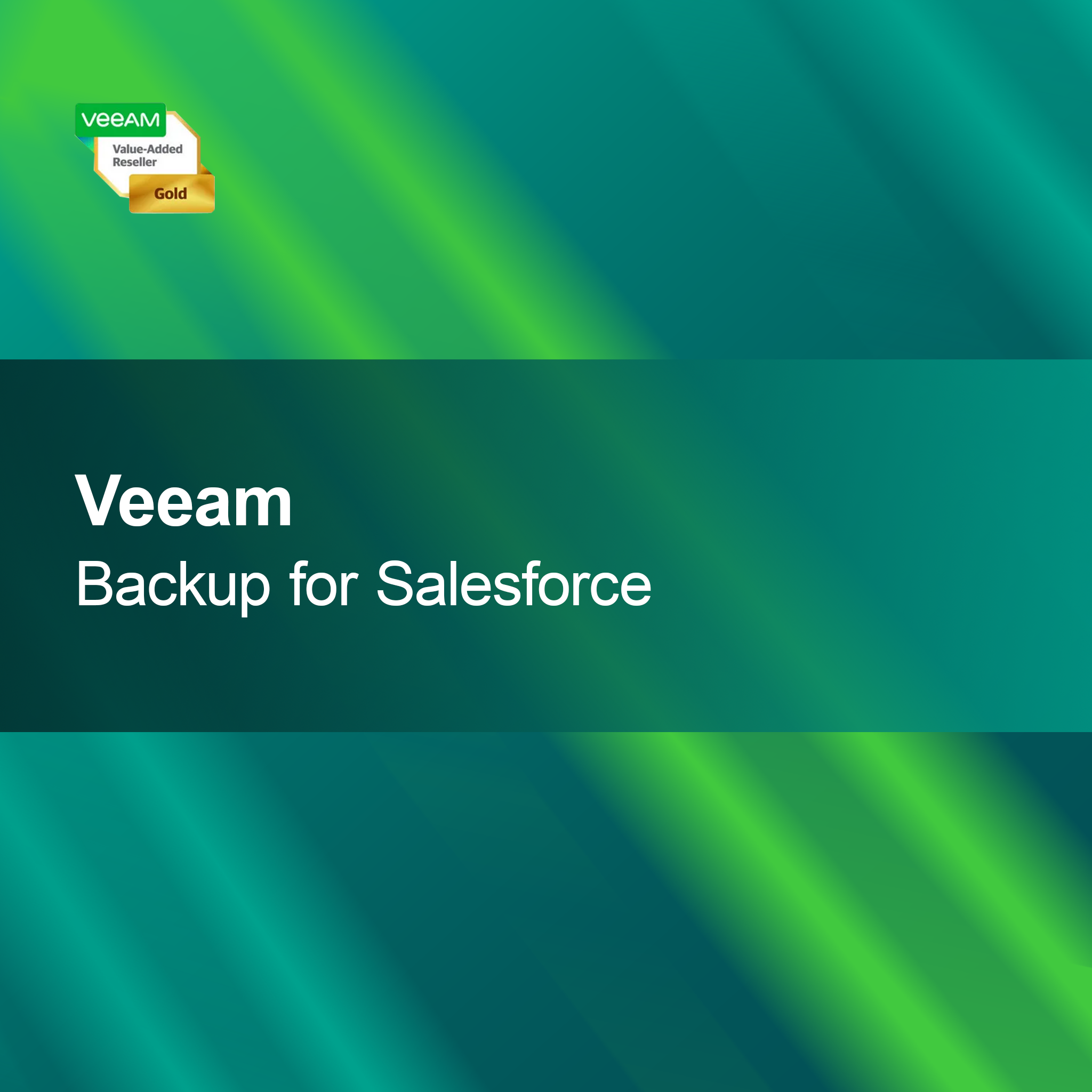-
Microsoft Windows 11 IoT Enterprise LTSC 2024
Regular price $230.600Sale price $230.600 Regular priceUnit price perMicrosoft Windows 11 IoT Enterprise LTSC 2024 With the license key for Microsoft Windows 11 IoT Enterprise LTSC 2024, you get a robust and powerful IoT...
-
Windows 365 Cross Region Disaster Recovery
Regular price $68.100Sale price $68.100 Regular priceUnit price perWindows 365 Cross Region Disaster Recovery With Windows 365 Cross Region Disaster Recovery, you reliably secure your cloud environment and increase the availability of your data...
-
Microsoft SQL Server 2022 Enterprise 2 Core
Regular price $7.137.500Sale price $7.137.500 Regular priceUnit price perMicrosoft SQL Server 2022 Enterprise 2 Core With the license key for Microsoft SQL Server 2022 Enterprise 2 Core, you get a powerful and reliable database...
-
Microsoft SQL Server 2019 Standard 1 User CAL
Regular price $107.600Sale price $107.600 Regular priceUnit price perMicrosoft SQL Server 2019 Standard 1 User CAL With the license key for Microsoft SQL Server 2019 Standard 1 User CAL, you get a powerful and...
-
Microsoft Exchange Server 2016 Standard, 1 Device CAL
Regular price $24.200Sale price $24.200 Regular priceUnit price perMicrosoft Exchange Server 2016 Standard, 1 Device CAL With the license key for Microsoft Exchange Server 2016 Standard, 1 Device CAL, you get a powerful and...
-
System Center 2019 Datacenter Core - Lic/SA OLP NL 16lic
Regular price $3.283.200Sale price $3.283.200 Regular priceUnit price perSystem Center 2019 Datacenter Core - Lic/SA OLP NL 16lic With the license key for System Center 2019 Datacenter Core, you get a powerful management platform...
-
Microsoft Windows Server 2019 Datacenter - Core Add-on License (AdditionalProduct )
Regular price From $428.200Sale price From $428.200 Regular priceUnit price perMicrosoft Windows Server 2019 Datacenter - Core Add-on License With the license key for the Microsoft Windows Server 2019 Datacenter - Core Add-on, you get a...
-
Microsoft SQL Server 2022 Standard 2 Core
Regular price $3.281.000Sale price $3.281.000 Regular priceUnit price perMicrosoft SQL Server 2022 Standard 2 Core With the license key for Microsoft SQL Server 2022 Standard 2 Core, you get a powerful and reliable database...
-
Microsoft Windows 10 Enterprise N LTSB 2016
Regular price $186.700Sale price $186.700 Regular priceUnit price perMicrosoft Windows 10 Enterprise N LTSB 2016 With the license key for Microsoft Windows 10 Enterprise N LTSB 2016, you get a stable and powerful operating...
-
Microsoft SharePoint Server 2019 Standard
Regular price $4.776.600Sale price $4.776.600 Regular priceUnit price perMicrosoft SharePoint Server 2019 Standard With the Microsoft SharePoint Server 2019 Standard license key, you get a powerful and reliable platform for collaboration in your company....
-
Microsoft Windows 10 Enterprise
Regular price $65.900Sale price $65.900 Regular priceUnit price perMicrosoft Windows 10 Enterprise With the license key for Microsoft Windows 10 Enterprise, you get a powerful and stable operating system specifically tailored to the needs...
-
Microsoft SQL Server 2014 Standard 1 User CAL
Regular price $75.800Sale price $75.800 Regular priceUnit price perMicrosoft SQL Server 2014 Standard 1 User CAL With the license key for Microsoft SQL Server 2014 Standard 1 User CAL, you get a robust and...
Server & Client
What are servers and clients?
Servers and clients are fundamental components in network architecture. A server is a powerful computer that provides resources, data, or services, while clients are the devices that access these resources. This relationship allows information to be shared and processed efficiently. In many networks, multiple clients work simultaneously with one or more servers, which increases the flexibility and scalability of the systems.
What types of servers are there?
There are different types of servers, each fulfilling specific functions. Web servers host websites and deliver content to clients over the internet. Database servers store and manage data, while application servers provide software applications. Additionally, there are mail servers that manage emails and file servers that enable access to files. The choice of the right server type depends on the requirements of your network.
How do servers and clients communicate with each other?
Communication between servers and clients usually takes place over a network protocol, such as HTTP for web applications or FTP for file transfers. Clients send requests to the server, which processes them and sends back the corresponding responses. This interaction can occur in real time, enabling dynamic use of resources. A stable network connection is crucial for smooth communication.
What are the advantages of server-client architectures?
Server-client architectures offer numerous advantages, including centralized data management and improved security. By separating server and client, updates and maintenance can be performed more easily without affecting the clients. Additionally, this structure allows better resource utilization, as servers can use more powerful hardware to serve multiple clients simultaneously. This leads to more efficient use of IT resources.
How do I choose the right server for my needs?
When choosing a server, you should consider several factors, including the type of applications you want to run, the number of clients, and the required performance. Consider whether you need a physical server or a virtual server in the cloud. Scalability is also important to accommodate future requirements. A thorough analysis of your needs will help you make the best decision.
How can I ensure security in server-client environments?
Security in server-client environments can be enhanced through various measures. These include implementing firewalls, regular software updates, and the use of encryption technologies. Additionally, access rights should be carefully managed to prevent unauthorized access. Training users on security practices is also important to raise awareness of potential threats and improve security.
What role do cloud servers play in modern networks?
Cloud servers play an increasingly important role in modern networks as they offer flexibility and scalability. They enable access to resources and applications over the internet, reducing the need for local hardware. Cloud servers can be quickly adjusted as needed, helping businesses save costs and work more efficiently. This technology also supports collaboration, as multiple users can access the same data simultaneously.
